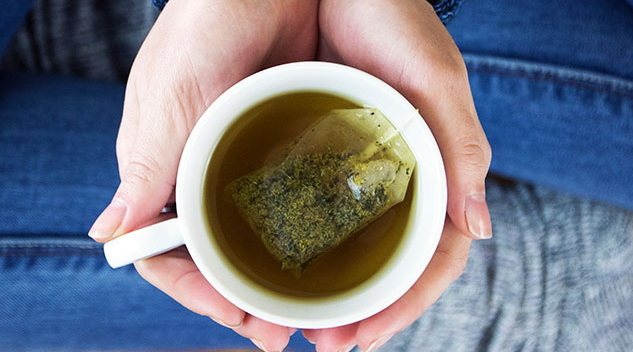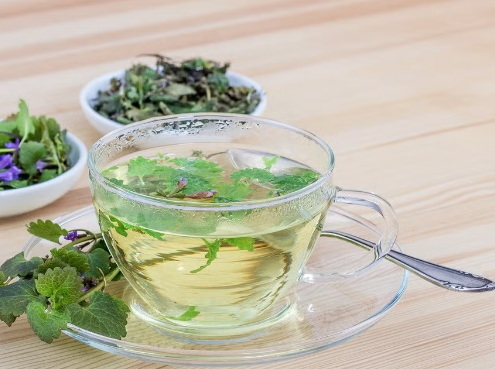Content Menu
● What is Green Tea Extract?
● The Benefits of Green Tea Extract
● The Benefits of Drinking Green Tea
● Comparing Green Tea Extract and Drinking Green Tea
● Potential Risks and Side Effects
>> Green Tea Extract
>> Drinking Green Tea
● Expert Opinions
● Conclusion
● FAQ About Green Tea and Green Tea Extract
>> 1. What is the best time to drink green tea?
>> 2. Can green tea extract cause liver damage?
>> 3. How much green tea extract is safe to take daily?
>> 4. Does adding lemon or milk affect the benefits of green tea?
>> 5. Are green tea supplements regulated?
● Citations:
Green tea, one of the most consumed beverages worldwide, has long been celebrated for its potential health benefits[1]. From boosting energy to promoting heart health and enhancing skin condition, the hype around green tea seems unending[1]. Green tea extract, a concentrated form derived from green tea leaves, has emerged as a popular supplement, often touted as a more convenient and potent alternative to the traditional brew[1]. But is green tea extract truly superior to drinking green tea? This article delves into the nuances of both, examining their benefits, risks, and overall impact on health.

What is Green Tea Extract?
Green tea extract is essentially a concentrated form of green tea, produced from dried green tea leaves[1]. It is packed with antioxidants and plant compounds known as catechins, which are believed to be responsible for many of its purported health benefits[1]. Among these catechins, epigallocatechin gallate (EGCG) stands out and is frequently highlighted in the marketing of energy drinks and supplements[1].
The extraction process typically involves pulverizing green tea leaves and then using organic solvents to isolate the polyphenols[4]. These solvents, often a mixture of ethanol and water, are more effective at extracting polyphenols than boiling water, allowing for a higher concentration of these compounds per gram of dry tea[4]. Ideally, the extract is then purified to remove non-essential and potentially harmful components like heavy metals[4].
The Benefits of Green Tea Extract
Green tea extract is often promoted for its various health benefits, including:
-Energy Boost: Green tea extract contains caffeine, which can provide an energy lift[1]. This is why it is a common ingredient in many energy drinks.
-Weight Loss: Some studies suggest that green tea extract may aid in weight loss, though the effects are often modest[1].
-Heart Health: Similar to green tea, the extract may help improve blood pressure and cholesterol levels, contributing to better heart health[1].
-Skin Health: The antioxidant properties of green tea extract may help reduce acne and rejuvenate aging skin[1].
The Benefits of Drinking Green Tea
Drinking green tea offers a range of benefits that are often attributed to its natural composition and minimal processing:
-Antioxidant Properties: Green tea is rich in antioxidants, which help combat disease-causing microorganisms and promote a healthy gut biome[3].
-Heart Health: Regular consumption of green tea is associated with a lower risk of coronary artery disease[1].
-Cancer Prevention: Studies suggest that the polyphenols in green tea may reduce the risk of certain cancers or slow their growth[5].
-Overall Well-being: Drinking green tea can be a relaxing ritual, contributing to overall mental and emotional well-being.
Comparing Green Tea Extract and Drinking Green Tea
| Feature | Green Tea Extract | Drinking Green Tea |
| Concentration | Concentrated form of green tea, higher levels of catechins and caffeine | Lower concentration of catechins and caffeine in brewed form |
| Processing | Requires extraction and purification processes | Minimal processing, simply steeping the leaves in hot water |
| Regulation | Regulated as food, not medicine, in the US and Europe[2] | Generally recognized as safe (GRAS) |
| Additional Ingredients | May contain other ingredients depending on the manufacturer | Pure tea leaves, allowing for control over additives |
| Risk of Adulteration | Higher risk due to varying manufacturing processes and lack of standardization[3] | Lower risk, as it is consumed in its natural form |
Potential Risks and Side Effects
Both green tea extract and drinking green tea come with potential risks and side effects:
Green Tea Extract
-Liver Problems: Overconsumption of green tea extract has been linked to liver damage[1][2]. Symptoms include yellowing of the skin or eyes, nausea, and stomach pain[5].
-Caffeine Overload: Excessive caffeine intake from green tea extract can lead to heart palpitations, high blood pressure, anxiety, and sleeping problems[1][5].
-Lack of Regulation: The supplement industry is not as strictly regulated, posing a higher risk of contamination or inaccurate labeling[2][3].
-Environmental Concerns: The extraction and chemical processing of supplements may involve harmful substances that are detrimental to the environment[2].
Drinking Green Tea
-Caffeine Sensitivity: Individuals sensitive to caffeine may experience anxiety, tremors, or sleeping problems[5].
-Teeth Staining: The tannic acid in green tea can stain teeth over time[5].
-Fluoride Content: While fluoride can prevent tooth decay, excessive intake may lead to health issues[5].
-Aluminum Absorption: Adding lemon juice to green tea may increase aluminum absorption in the body[4].
Expert Opinions
Integrative medicine specialist Irina Todorov, MD, cautions against relying on energy drinks that contain green tea extract due to the risk of caffeine toxicity, especially among adolescents[1]. She suggests lifestyle changes as a better alternative for boosting energy levels[1]. She also notes that while green tea extract may aid in weight loss, lifestyle changes are equally effective and avoid the risk of side effects and the cost of supplements[1].
Nutritionists generally recommend obtaining nutrients from whole foods rather than supplements[3]. A freshly brewed cup of green tea is often considered more beneficial than taking a supplement pill[3].
Conclusion
While green tea extract offers a concentrated dose of beneficial compounds like catechins and caffeine, it also carries potential risks, including liver problems and caffeine overload[1][5]. Drinking green tea, on the other hand, provides a more natural and less processed way to enjoy these benefits, with a lower risk of adverse effects[3].
For those who enjoy the taste of green tea, brewing a cup is generally the preferred option[1]. However, if the taste is unappealing, green tea extract may be considered with caution, ensuring that it is taken in moderation and under the guidance of a healthcare professional[3]. It is crucial to remember that supplements should complement a healthy lifestyle, not replace it[1].
Ultimately, the decision to choose green tea extract or drinking green tea depends on individual preferences, health goals, and risk tolerance. Prioritizing a balanced diet, regular exercise, and informed choices will contribute to overall well-being[1].

FAQ About Green Tea and Green Tea Extract
1. What is the best time to drink green tea?
There is no specific "best" time to drink green tea, but it is generally recommended to avoid drinking it on an empty stomach or right before bed[3]. Drinking it between meals can help optimize its benefits without causing digestive discomfort or sleep disturbances[3].
2. Can green tea extract cause liver damage?
Yes, excessive consumption of green tea extract has been linked to liver damage in some individuals[1][2][5]. Symptoms may include jaundice (yellowing of the skin and eyes), nausea, and abdominal pain[5]. It is essential to adhere to recommended dosages and consult with a healthcare provider[3].
3. How much green tea extract is safe to take daily?
The safe daily dosage of green tea extract varies depending on the individual's health status and sensitivity to caffeine[3]. A study found that taking a 379 mg daily dose of green tea extract can help improve blood pressure and cholesterol numbers[1]. It is best to follow the recommendations of a healthcare professional[3].
4. Does adding lemon or milk affect the benefits of green tea?
Adding lemon juice to green tea may enhance the extraction of polyphenols[4]. However, it may also increase aluminum absorption in the body[4]. Milk, on the other hand, does not significantly affect catechin bioavailability or blood catechin levels[4].
5. Are green tea supplements regulated?
Green tea extract supplements are regulated as foods, not medicines, in the US and Europe[2]. This means they are not subject to the same rigorous testing and approval processes as pharmaceutical drugs[2]. Consumers should exercise caution and choose reputable brands that provide transparent information about their products[3].
Citations:
[1] https://health.clevelandclinic.org/green-tea-extract-a-better-way-to-boost-energy-or-not
[2] https://japanesegreenteaonline.com/blogs/news/green-tea-vs-extract-supplements
[3] https://food.ndtv.com/food-drinks/green-tea-vs-green-tea-extract-which-one-is-better-for-you-2013203
[4] https://magazine.labdoor.com/green-tea-supplements-vs-drinking-green-tea/
[5] https://www.urmc.rochester.edu/encyclopedia/content?contenttypeid=19&contentid=greenteaextract
[6] https://tigogreen.de/en/greentea-greentea-extract/
[7] https://mayafellernutrition.com/food-facts/green-tea-extract-is-not-the-same-as-green-tea-and-that-matters-for-your-health/
[8] https://www.nccih.nih.gov/health/green-tea





























